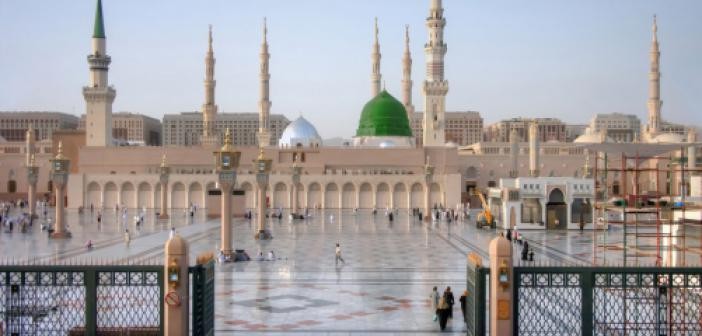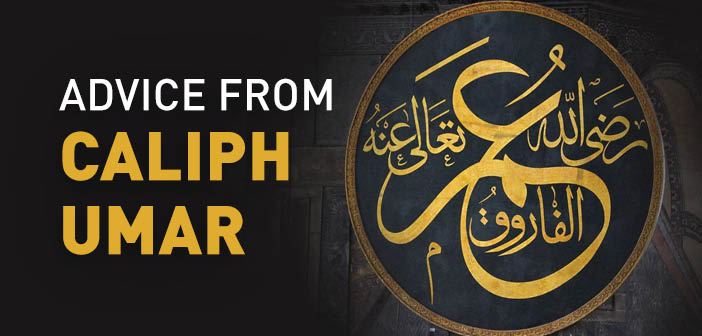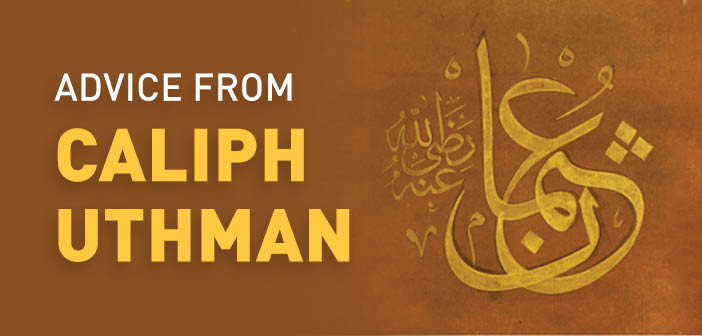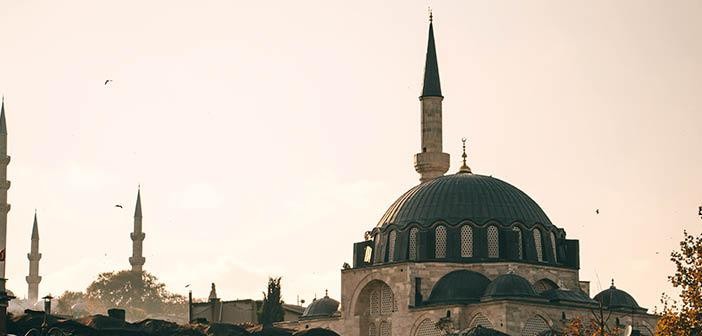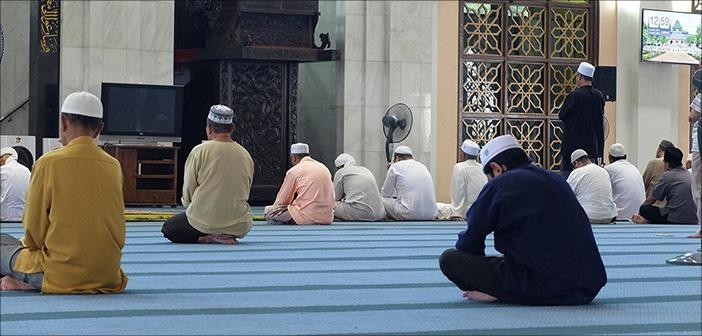
Prophet Idris -peace be upon him-
Who is prophet idris? What did prophet idris invent? What are the characteristics of the prophet idris?
The prophet who held the key to divine mysteries
IDRIS
-peace be upon him-
It has been narrated that Idris (as), also identified as Enoch, was born in Babylonia. He is the sixth great grandson of Adam (as).
Idris (as) engaged heavily in worship long before he was made a prophet. He would keep company with the righteous and earn his living as a tailor. In fact, the craft of tailoring begins with him.
Idris’ (as) society were descendants of Cain and had become spiritually corrupt. They had deviated from the path shown by Seth (as) and abandoned the duty of servanthood. They had blurred the line between right and wrong, and would do the wrong believing it was right. So, to set them straight, Allah made Idris (as) a prophet and gave him a revelation of thirty pages. Idris (as) conveyed the edict to his people, which reminded them of the right and wrong.
Angels would come to visit Idris (as) in groups and have conversations with him. It is estimated that Idris (as) had around a thousand followers.
Idris (as) was known for his words of wisdom, some of which are:
“A wise person does not look at the faults of others or rub their mistakes in their faces. Neither does wealth make him arrogant and corrupt his morals”.
“He who does not cleanse his soul has no brain”.
“The love of the world and the love of the hereafter never come together in a single heart”.
“When you pray, keep your intentions clean”.
The Qur’an tells us that towards the end of his life, Idris (as) was raised to the heavens:
“And We raised him to a high place.” (Maryam, 19: 57)
That ‘high place’ may be somewhere close to Allah or a place in paradise, as well as the fourth tier of the heavens. It is in fact reported in a hadith:
“When I went up to the fourth heaven during the Night Journey (Miraj), I came across a man. Jibril told me he was the prophet Idris and asked me to greet him. So, I greeted him; and he responded, saying, ‘Greetings righteous brother and righteous prophet!’” (Al-Bukhari, Badu’l-Khalq, 6; Muslim, Iman, 259-264)
Some scholars have suggested that Idris (as) is still in the heavens, and still alive.
The Qur’an praises Idris (as) for being loyal.
“And mention in the Book, Idris. Indeed, he was a man of truth and a prophet.” (Maryam, 19: 56)
“And mention Ismail and Idris and Dhul-Kifl; all were of the patient. And We admitted them into Our mercy. Indeed, they were of the righteous.” (Al-Anbiya, 21: 85-86)
Rumi compares Idris (as) to Jesus (as), who like him, was raised to the heavens:
“Through a tremendous effort to abstain from the world, Idris and Jesus became like angels. They reached a point where they could almost do without food and water. Because they resembled angels so much, they were raised to the heavens to join their kind.”
Patience and self-denial matured the souls of both Idris (as) and Jesus (as) to the point they were raised to the heavens like angels. That tells us that it is also possible for us to reach spiritual heights if we cleanse our egos and purify our hearts.
The prophets represent the zenith of spiritual progress; yet they have also set an example in material progress. Just as Adam (as) mastered the craft of agriculture, Idris (as) mastered the art of tailoring. Writing, which began with the first human being, had also developed a great deal in the time of Idris (as).
In short, Idris (as) was:
…a prophet who received pages of revelation
…a man praised in the Qur’an as upright and virtuous
…the patriarch of tailors
…raised to high ground
...a pillar of patience
…among the rigteous
…graced with divine mercy
Peace be upon him…
The Heart And its Secrets
Idris’ (as) life exemplifies an admiration of Allah’s majesty and shows us how a purified heart can open up to divine manifestations. It also gives us opportunity to see how man, who risks becoming worse than animals, may also surpass the rank of angels.
The heart is at the center of the spiritual and physical worlds. With the help of Allah, a purified and trained heart may allow a person to leave angels behind in spirit, even though physically, he may appear like any other human being.
At this point, it would be proper to provide some details on world of the heart, insofar as that was the defining characteristic of Idris (as).
Preparing for death and beyond should be man’s most important duty and worry in this life. However, he cannot do so unless he knows the nature of the heart and ways of guiding it towards conduct that would steer it away from the dangers and evils that threaten it. This is a sound heart that is in fact also needed for happiness in this life.
Qalb, which is the Arabic term for heart, means to change color or convert something into its opposite. It is a fitting term, considering the heart constantly quivers between angelic and demonic tendencies, between good and evil.
The progress or demise of the heart is what determines the progress or demise of man, both individually and socially. Good morals and deeds burst from hearts overflowing with spirituality. That is what allows man to live up the reputation of having been created in the best of forms. (ahsan-i taqwim)
On the other hand, hearts dominated by the ego are lustful and delusional; and they give rise to evil conduct, including disbelief. These are cases where the heart has turned blind by having converted to the exact opposite reason of its existence. People whose hearts have this character slowly sink the person below the level of animals. The Qur’an states:
“And We have certainly created for Hell many of the jinn and mankind. They have hearts with which they do not understand, eyes with which they do not see, and ears with which they do not hear. Those are like livestock; rather, they are more astray. It is they who are the heedless.” (Al-Araf, 7: 179)
Protecting the heart from the corrupting whispers of the ego and the devil is possible only through worshipping and remembering Allah, embodying good morals and attending spiritual circles. These give the heart taqwa; and that is the proper measure of superiority. Allah (jj) declares:
“Indeed, the most noble of you in the sight of Allah is the most righteous of you” (Al-Hujurat, 13)
But the state of taqwa also needs to be protected from the ever the risk of losing it. For that, a person needs to keep company with the righteous and attend their circles. These circles are very important in protecting the heart and giving it free reign to proceed on the spiritual path. Such circles virtually abound in inspirations from the prophets. Saints tell us that the very first spot to receive the inspiration Allah –the ultimate Inspirer- has provided his servants with, was the chest of the Prophet Muhammed (saw). From there, it was transferred to the righteous, from whom it is further transmitted to those who loved them and their company.
Even the modern science of social psychology accepts that human beings are open and exposed to external influences. Moods and traits are contagious and people constantly pick up habits from one another. This is never more so obvious than in the exchange of spiritual qualities. People who spend time with the righteous become like them. The Qur’an tells us that there is in fact a direct link between taqwa and accompanying righteous people.
“O you who have believed! Fear Allah and be with those who are righteous.” (Al-Tawbah, 9: 119)
The most devastating loss and biggest crime is to be unable to protect the gem that is the heart. Those who let the devil steal their hearts will be snatched away to hellfire. The heart is the compass of truth. Without it, the ego loses direction and leads one astray. Whichever direction, good or bad, man inclines towards, is what defines his quality. The Prophet (saw) has said:
“Allah certainly does not look are your looks or wealth but at your hearts and deeds.” (Muslim, Birr, 34)
And according to their spiritual blend, hearts fall into five categories:
1. Hearts that are Stamped and Sealed
These hearts carry no spiritual quality whatsoever. They have sunk deep into an animalistic lifestyle and pleasures of the skin. They see life on earth as nothing other than eating, drinking and having fun. They are far removed from being able to discover the fine secrets Allah has etched into both man and the universe. They are the exact opposite of the hearts of prophets and saints. Bodies that cage these hearts up are no different to graves. Just as the flesh rots away in the grave, these hearts decay in the murky swamps of disbelief. A heart of this kind not only takes its holder but also those around him to a miserable end. The Qur’an says:
“Then do they not reflect upon the Qur’an, or are there locks upon their hearts?” (Muhammad, 47: 24)
People with such hearts are so ingrate and contradictory that they revel in disobeying Allah’s commands, while relishing pleasures provided by no-One other than Allah. Allah (jj) describes them as:
“Deaf, dumb and blind - so they will not return to the right path.” (Al-Baqarah, 2: 18)
“Indeed, you will not make the dead hear, nor will you make the deaf hear the call when they have turned their backs. You cannot guide the blind away from their error. You will only make hear those who believe in Our verses; and it is those who are Muslims.” (Al-Naml, 27: 80-81)
Allah the Almighty further confirms that these hearts are stamped and sealed from being guided:
“Allah has set a seal upon their hearts and upon their hearing, and over their vision is a veil. And for them is a great punishment.” (Al-Baqarah, 2: 7)
The above verse describes hearts that have been stamped and sealed from the truth and the good, for having severed all connections with human spirituality. Unsealing them is only up to Allah (jj) who they have long forgotten.
This contains a divine secret and wisdom that should send fear into all of us. Only Allah knows which hearts have been shut to salvation, not us. Allah (jj) guides whomever He wills, even if it be on the deathbed.
Although the Qur’an speaks of people whose hearts have been sealed, it is impossible to tell who these people may be, one by one. Regardless of the path a person may be travelling on at present, nobody can tell where he may end up. Take are the Pharaoh’s magicians who led a life on the wrong side before suddenly finding the truth. There are the likes of Korah and Balam ibn Baurah, who for almost a lifetime walked the path of the right only to end up on the wrong side. Muslims should therefore never misconstrue these verses and give up on people. They should instead be weary of slipping and be alert enough to always ask Allah to keep their hearts unshakably firm on the right path. Hearts that are neglected become harder to the truth than stone:
“Then your hearts became hardened after that, like stones or even harder. For indeed, there are stones from which rivers burst forth, and there are some of them that split open and water comes out, and there are some that fall down for fear of Allah And Allah is not unaware of what you do!” (Al-Baqarah, 2: 74)
For that reason, Allah warns us to keep our hearts from becoming stamped and sealed to the truth:
“And be not like those who forgot Allah, so He made them forget themselves. Those are the defiantly disobedient.” (Al-Hashr, 59: 19)
2. Hearts that are Diseased
These stand somewhere in between hearts that are healthy and hearts that are sealed. About them, the Qur’an says:
“In their hearts is disease, so Allah has increased their disease; and for them is a painful punishment because their lies.” (Al-Baqarah, 2: 10)
People with diseased hearts are those who say they believe but do not lead a righteous life, as they are too weak to break the clutches of their ego. Faith in Allah has not settled properly in their hearts. They are like people writhing in agony due to an illness. They have neither a peace of mind nor a peace of heart. Their inner confusion reflects in a disorderly life; and the disorderliness of their lives ends up confusing them even more. Allah says:
“Those are the ones who have purchased error in exchange for guidance, so their transaction has brought no profit, nor were they guided.” (Al-Baqarah, 2: 16)
Conceit, vanity, jealousy and the love of the world are among the flaws that prevent the heart from grasping the signs of the Lord. These are all diseases of the heart. People afflicted with these diseases can never take their share of unlocking the Qur’an’s mysteries and embody a conduct that Allah is pleased with, unless they undergo spiritual training to cleanse their egos. The Qur’an says it:
“I will turn away from My signs those who are arrogant upon the earth without right.” (Al-Araf, 7: 146)
It is therefore clear that unlocking the secrets of the Qur’an, the cosmos and man are possible only if one sets out on the path of spiritual training. The Almighty states:
“So have they not traveled through the earth and have hearts by which to reason and ears by which to hear? For indeed, it is not eyes that are blinded, but blinded are the hearts which are within the breasts!” (Al-Hajj, 22: 46) This teaches us that reviving and curing hearts is done by gazing at the universe and the events that unfold with the eye of the heart and taking lessons from the experiences of past people.
And these words of the Prophet (saw) awaken us to the need to keep our hearts healthy through a beautiful imagery:
“Be aware that the body has a piece of flesh. If it is well, so is the rest of the body; and if unwell, so is the rest. And that…is the heart.” (Al-Bukhari, Iman, 39)
Scholars have generally classified the diseases of the heart under the categories of faith or moral conduct. They have accordingly called deviances such as disbelief, hypocrisy, ignorance and doubt illnesses of faith, while referring to lust, desire to sin, cowardice, miserliness, showing off, conceit, jealousy and the love of the world as moral illnesses.
Essentially, the heart becomes ill as a result of following the desires of the ego, which itself stems from ignorance and weak faith. The more the sins there are, the more the illness grows; and this can ultimately lead to the heart becoming stamped and sealed.
A heart veiled by harmful thoughts and feelings becomes unable to see the truth; and even when it does, its vision is blurred. These negative emotions push the heart into doubt and make it blind. As a result, the heart loses the blood needed to believe and falls weak, while the body loses its capability to do good. A heart of this kind is not only unable to show love and respect for Allah (jj) and His Messenger (saw), it is also incapable of being a true servant.
Consequently, deeds that come out of diseased hearts lose their value in the sight of Allah. Hearts not enlightened by the ray of truth lose the awareness they need to detect the countless fine prints of divine majesty sprinkled throughout the universe.
3. Hearts that are Neglectful
One of the most serious diseases of the heart is neglect. It besieges the heart and holds it back from doing good. The Qur’an says the heart becomes infected by neglect as a result of forgetting the Lord:
“And do not obey one whose heart We have made heedless of Our remembrance and who follows his desire and whose affair is ever in neglect.” (Al-Kahf, 18: 28
“And remember your Lord within yourself humbly and in fear without being too vocal, morning and night. And do not be among the heedless!” (Al-Araf, 7: 205)
The more the ignorance grows, the harder the heart becomes. Allah states:
“Then woe to those whose hearts are hardened against remembering Allah. Those are in manifest error!” (Al-Zumar, 39: 22)
Elsewhere, the Qur’an warns that by forgetting the Lord, man becomes a plaything for Satan’s games, and gradually but recklessly loses the honor that makes him a human being:
“And the devils increase the error of their brothers; and do not hold back!” (Al-Araf, 7: 202)
Deeds done with neglectful hearts are a waste and unaccepted by the Lord. These hearts have to undergo spiritual treatment. The cure lies in these:
a. Halal Food
It is only through the strength we have in our bodies that we are able to worship the Lord. While clean or halal food inspires the body, food that is doubtful or impermissible brings gloom. In developing the spirit, Sufi masters have stressed the importance of two things:
“Watch what goes inside your mouth when you eat, and what comes out of it when you speak”.
Abdulqadir Jilani also underlines the importance of a clean morsel in purifying the heart:
“Son…Eating what is haram kills the heart. There are morsels that enlighten your heart; and there are morsels that drown it in darkness. There are morsels that occupy you with the world; and there are morsels that engage you with the hereafter. There are morsels that make you a saint of both worlds and turn your heart to their Creator. Eating haram absorbs you in the world and makes sins appear charming. Eating halal makes the hereafter your sole concern and deeds of worship endearing. It takes your heart closer to your Lord. Only by knowing Allah can you know the nature of food and its effects. The knowledge of Allah is written in the heart, not in books. The Creator reveals His knowledge to the heart. It is not something you can learn from the created. You may only learn once you affirm His Oneness and practice what He has taught.”
However, even when consuming halal food, one needs to avoid waste and observe a balance:
“And give the relative his right, and also the poor and the traveler, and do not spend wastefully. Indeed, the wasteful are brothers of the devils, and Satan is ever ungrateful to his Lord.” (Al-Isra, 17: 26-27)
The Prophet (saw) also cautions:
“It is surely waste for you to eat everything you feel like!” (Ibn Majah, Atimah, 51)
But offering generously to guests is advised and has been exempted from wastefulness.
b. Reflecting on the Qur’an
It is vital to reflect on the Qur’an, to think about the wisdoms behind its commands and bans, and take lessons from its stories. The purer our hearts, the more the Qur’an will inspire us. The Almighty says the Qur’an is the remedy for all spiritual illnesses that destroy the heart:
“And We send down of the Qur’an that which is healing and mercy for the believers, but it does not increase the wrongdoers except in loss.” (al-Isra, 17: 82)
Abu Dharr (ra) recounts:
“I once asked the Messenger of Allah (saw) for some advice.
‘I advise you with taqwa’, he said, ‘for it is the first step of every action’. I then asked him for more advice, upon which he said:
“Keep on reading the Qur’an and remembering Allah. The Qur’an is a light for you on earth, and food for your travel to the skies”. (Ibn Hibban, II, 78)
On another occasion, the Prophet (saw) said:
“A person who reads and protects the Qur’an will be told in the hereafter, ‘Read and rise…read slowly and with poise as you did on earth…for your rank is as high as the last verse you recite”. (Abu Dawud, Witr, 20)
c. Worshipping with Concentration
To rid the heart of illnesses, it is essential to worship with focus and concentration (khushuu). Allah is uninterested in deeds that lack them:
“So, shame on those who pray…but are heedless of their prayer.” (Al-Maun, 107: 4-5)
Scholar Elmalili Hamdi Yazir interprets the above as follows:
“The people mentioned are heedless to the importance of ritual prayer and do not take it as seriously as they should. This may mean a number of things:
They do not care whether they pray or not.
They do not observe the times of prayer; they delay it.
They remain undisturbed by having stopped praying.
They pray not with a sincere intent to seek the pleasure of the Lord but only to get ahead in the world.
They pray in public but not in private. Even when they do, they are uncaring and far removed from the state of mind that makes one pray as if he is physically in God’s presence.” (Hak Dini Kuran Dili, IX, 6168)
The Qur’an also states:
“The believers have certainly succeeded. They who are humbly focused during prayer.” (Al-Mu’minun, 23: 1-2)
Elsewhere, we are told how it is possible to pray with focus and concentration:
“And seek help through patience and prayer, and indeed, that is difficult except for those who are humbly focused…who are certain that they will meet their Lord and that they will return to Him.” (Al-Baqarah, 2: 45-46)
Khushuu, which is the Arabic term for being focused while offering deeds of worship, has been defined as an inner action of the heart that is related to fear and shyness, as well as physical conduct where one finds peace by abandoning futile activity. Both are connected. Khushuu takes root inside the heart and transpires in bodily action. A person first becomes focused when, deep in the heart, he realizes that he is nothing in comparison to the majesty and might of Allah, and is overcome with feelings of reverence and respect. As a result, the body calms down, finds peace and stays put. While praying, the eyes do not wander around, but stare at the ground where the forehead is about to fall for the Lord in prostration.
A closer look shows that reaching that level of focus requires one to pray as if he is only moments away from dying and returning to Allah. Again, there must be total harmony between the heart and the body. Only a prayer of this sort can protect a person from evil and perversion.
Sufi Bahauddin Naqshbandi was once asked:
“How can a person find his focus while praying?”
“Through four things”, he answered. “Eating clean (halal) food, being mindful during ablution, awareness of being in Allah’s presence the moment the prayer begins and not forgetting Allah after the prayer ends.”
The Qur’an in fact says:
“…those who are constant in their prayer” (Al-Ma’arij, 70: 23)
And elsewhere:
“And those who give what they give with hearts that are fearful because they will be returning to their Lord.” (Al-Mu’minun, 23: 60)
“Do they not know that it is Allah who accepts repentance from His servants and receives charities?” (Al-Tawbah, 9: 104)
The verse tells us that just like ritual prayer, other deeds like charity must be offered with khushuu and without showing off. This fine point is also expressed in the hadith, ‘Do not let your left hand find out about what your right hand gives”. (Al-Bukhari, Adhan, 36)
d. Continuing Dhikr
The Qur’an mentions the word dhikr around 250 times. Dhikr is to constantly remember the Lord without forgetting Him for a single moment. We are commanded by the Qur’an to persistently remember our Lord day and night, while sitting down or lying in bed:
“O you who have believed! Remember Allah with much remembrance. And exalt Him morning and afternoon” (Al-Ahzab, 33: 41-42)
“…those who remember Allah while standing, sitting or lying on their sides…” (Al Imran, 3: 191)
The Prophet (saw) says that those ‘who remember Allah and shed tears in places out of sight’, will be shaded under the Lord’s Throne in the hereafter, on a day when there will be no other shade.[1]
To purify the heart and raise its level, it is vital to continue doing dhikr. Believers will better appreciate its value in the afterlife. In fact, the Prophet (saw) tell us that:
“The dwellers of paradise will never lament…except the times on earth that passed them by without them remembering Allah”. (Haythami, X, 73-74)
e. Reviving the Nights
The night is a dress of comfort tailored to the needs of life. It provides wonderful cover for those wishing to conceal themselves both physically and spiritually. The Almighty says:
“And We made the night as clothing” (Al-Naba, 78: 10). The night is indeed a clothing man enshrouds himself in to turn to his inner world and drop the physical and mental stresses of the day. The day is unable to provide the spiritual and physical relief that night does. Those who do not appreciate the night can never understand the value of the day. Abusing the precious hours of the night with useless activities is nothing but to give up the peace that the morning otherwise brings.
For people of the heart, there is never a better time than the peace and quiet of night. It is necessary to spend a few hours of the night awake, to make the most of the inspirations it provides. On this, the Qur’an says:
“They arise from their beds; implore their Lord in fear and aspiration, and spend from what We have provided them. And no soul can imagine the comforts what we have prepared for them…as reward for what they do.” (Al-Sajdah, 32: 16-17)
“And during the night, they prostrate to Him and exalt Him a long into the night.” (Al-Insan, 76: 26)
To gaze at the spiritual scenes which the night has to offer, one must put those hours to good use.
“They used to sleep but little of the night. And in the hours before dawn they would ask forgiveness.” (Al-Dhariyat, 51: 17-18)
“And also rise from sleep during the night. This is an additional prayer for you, so that perhaps your Lord will raise you to an honored position.” (al Isra, 79)
And with that above verse, the tahajjud or night prayer was made compulsory for the Prophet (saw), while highly recommended for his followers. It is a sunnah; and Allah praises those who keep it up:
“And those who spend part of the night to their Lord prostrating and standing in prayer.” (Al-Furqan, 25: 64)
And elsewhere:
“It is He who sees you when you arise, and your movement among those who prostrate.” (Al-Shu’ara, 42: 218-219)
On that final verse, Qadi Baydawi says:
“When the five daily prayers were made compulsory and the night prayer advisory (sunnah), the Noble Prophet (saw) strolled out of his room and onto the streets to see how his companions were spending the night…only to hear their homes humming, like beehives, with the sounds of Qur’an and dhikr”. (Anwar al-Tanzil, IV, 111)
f. Keeping Company with the Righteous
This is vital not only to protect the heart but also to let it flourish on the spiritual path. The heart is prone to come under the influence of those it feels close to. That is when a transfer of character takes place. Those who are spiritually stronger affect the weaker others and become their source of inspiration. In other words, the kindness, compassion and finesse of righteous people are contagious and spread to those around. The reason as to why the companions were the best of all believers was no other than the fact they were privileged to be in the presence of the Prophet (saw) and be inspired by him. The Almighty says:
“O you who have believed! fear Allah and be with those who are righteous.” (Al-Tawbah, 9: 119)
The Prophet (saw) gives a wonderful analogy to stress the importance of company:
“The difference between a good and a bad friend is like that between a man carrying musk and another fanning bellows of smoke. The first will either offer you some musk or sell you some. As for the other, he will either burn you or your clothes…or at the very least, leave you stinking of soot.” (Al-Bukhari, Buyu’, 38)
And he says that need does not end with death:
“Bury your dead with the righteous”. (Daylami, Musnad, I, 102)
Those who befriend the righteous, in time, become righteous themselves. Hanging around sinners, in turn, turns one into sinner. The heart is always exposed to the affects of the spiritual environment it is in. While each organ in the human body has a will of its own, the heart has not. It cannot control its emotions and as a result, follows the direction of its surroundings.
Luqman’s (as) advices to his son shed light on that:
“Son…keep company with scholars and try and not to leave their circles. For wisdom revives the heart, just as rain revives the soil”. (Ahmad ibn Hanbal, Zuhd, 551)
Female companions would warn their children when they neglected seeing the Prophet (saw) over a lengthy period of time. Huzayfa (ra) was told off by his mother for going just a few days without visiting the Prophet (saw) and attending his circle. Huzayfa (ra) recounts:
“My mum once asked me how long it had been since I last saw the Messenger of Allah (saw).
‘A few days’, I said. She became very angry and berated me. So, I said, ‘Please, calm down. I will see the Messenger of Allah (saw) immediately, join him in prayer and ask him to pray for both you and me.” (Al-Tirmidhi, Manaqib, 30; Ahmad ibn Hanbal, Musnad, V, 391-2)
4. Hearts that Remember
Here, faith has sept deep inside the heart, allowing it to illuminate the body and the spirit to rein in the ego. The person begins to feel its joy. To get there, the Almighty encourages believers to continue with dhikr, which he calls the greatest of all deeds:
“And the remembrance of Allah is far greater.” (Al-Ankabut, 29:45)
“And remember the name of your Lord and devote yourself to Him with complete devotion.” (Al-Muzzammil, 73: 8)
“Remember Me and I will remember you. And be grateful to Me and do not deny Me.” (Al-Baqarah, 2: 152)
Allah praises those who are able to arrive at the truth of dhikr and recognize it as being above all mortal pleasures. He commends them for not being fooled by the dazzle of the world and finding peace instead in remembering the Divine.
“Men whom neither commerce nor sale distracts from the remembrance of Allah” (Al-Nur, 24: 37)
“Only in the remembrance of Allah do hearts find comfort.” (Al-Ra’d, 13: 28)
Allah the Almighty compliment men and women engaged in dhikr, separately:
“Men who remember Allah often and women who do so.” (Al-Ahzab, 33: 35)
Repeated dhikr grows the flowers of divine love in the heart and turns it away from fleeting pleasures. The Prophet (saw) says:
“A sign of loving Allah is to love His remembrance”. (Suyuti, al-Jamiu’s-Saghir, II, 52)
On the other hand, those who abstain from dhikr are in danger, as it is a sign of being remote from divine love.[2] The Qur’an warns:
“And whoever is blinded from remembrance of the Most Merciful, We appoint for him a devil and he is to him a companion. And indeed, the devils avert them from the way of guidance while they think that they are rightly guided. Until, when he comes to Us on the Day and says to his companion, “Oh, I wish there was between me and you the distance between the east and west - how wretched a companion.” (Al-Zukhruf, 43: 36-38)
We must therefore seize dhikr to protect ourselves from the devil, who tries to trip us over and drag us into the dark corridors of corruption. Good morals are possible only for those who fear and love Allah (jj) and constantly keep Him both on the mind and on the tongue.
Ali (kw) would say:
“What could be better than meetings that take place only to remember Allah (as) and His blessings? The Messenger of Allah (saw) would gather his companions in a circle and have them do dhikr altogether”.
Remembering Allah not only affects the spirit but also matter. As the Qur’an says:
“So eat of that meat upon which the name of Allah has been mentioned, if you are believers in His verses.” (Al-An’am, 6: 118)
Dhikr comes in a number of forms. Allah does not command us to remember Him in one specific way or another. Each instance of dhikr bears a number of manifestations. Nevertheless, the best and most beautiful dhikr is the one called ism-i azam, which is also known as lafzatullah or Allah’s Name. It is believed that this is ‘Allah’. This Divine Name contains the essence of all names. It therefore has a special place among all ways of remembering Allah. For instance, if we were to remove the first letter ‘ا’, we get ‘للّٰه’, which means ‘for Allah’. Then, if we were to remove the first ‘ل’, we get ‘له’, which means ‘for Him’. If we were to remove the second ‘ل’, we get ‘ه’, which means ‘Him’. Each of these elements still refers to Allah.
Our Prophet (saw) states that even the wellbeing of the cosmos comes down to dhikr:
“The final hour will not come as long as there is a single person left on earth who says, ‘Allah, Allah’.” (Muslim, Iman, 234/148)
This is a dhikr, which distinguished people attach great importance to. The final hour will not strike, as long as there are people who continue with it. They are such exceptional people that the Almighty sustains the world through them. In whichever place they may be, that area becomes protected.
Another dhikr that the Prophet (saw) encourages us to say is kalima-i tawhid or ‘لا اله الا اللّٰه’, which means ‘there is no god but Allah’.
“Renew your faith by repeating La ilaha ill’Allah.” (Hakim, al-Mustadrak, IV, 285/7657)
Despite having been given the entire world at his disposal, even Solomon (as) said:
“My kingdom is fleeting…but the kingdom that comes with repeating ‘there is no god but Allah’ is eternal”.
The above dhikr is a particularly important feature of dhikr circles, as indicated by Shaddad ibn Aws (ra):
“We were once with the Messenger of Allah (saw) when he asked, ‘Are there any outsiders among us?’. By outsiders, he meant Jews and Christians. We replied, ‘No, there are not’, to which he responded:
‘Then raise your hands and say, ‘La ilaha ill’Allah!’
We raised our hands and for a while repeated those words. The Messenger of Allah (as) then lowered his hands and prayed:
‘All thanks to You, My Lord. You sent me with those words, commanded me to do what is required by them….and promised me paradise in return. You never turn back on Your promise.’
The Messenger of Allah (saw) then turned to us and said:
‘Congratulations…for Allah has surely forgiven you all!’” (Ahmad ibn Hanbal, Musnad, IV, 124)
In another hadith, the Prophet (saw) says:
“La ilaha ill’Allah are words that have great value in the sight of Allah. Whoever says them sincerely, will be placed in paradise. Whoever says them without meaning them, will have his life and property protected but will be called into account when he reunites with Allah”. (Haysami, Majmau’z-Zawaid, I, 26)
However, the Prophet (saw) underlines that the key to dhikr is to be constantly aware of being under Allah’s watch:
“Do not forget Allah and engage in futile talk…as chatting away without keeping Allah in mind hardens the heart. The person most distant from Allah is the hardhearted.” (Al-Tirmidhi, Zuhd, 62)
Saying kalima-i tawhid is especially important in the moments before death.
“Whoever’s last words are La ilaha ill’Allah will enter paradise.” (Abu Dawud, Janaiz, 15-16/3116)
The Prophet (saw) would take into regard the spiritual levels of his companions when advising them with dhikr. His cousin, Umm Hani (ra), had once come to him and said, “I have become old and frail. Can you recommend me a deed of worship I can offer without having to get up?”
The Prophet (saw) told her, “Say subhanallah, elhamdullillah and la ilaha ill’Allah a hundred times each”. (Ibn Majah, Adab, 56; Ahmad ibn Hanbal, Musnad, VI, 344).
In short, remembering Allah takes one out of the darkness of forgetfulness into love, which is the only means to reunite with the Lord. The quality of our reunion with the Lord in the afterlife depends on the frequency in which we remembered Him here. We must therefore pay close attention to the splendor of the dhikr that Islam has commanded us with. The fruits of remembering Allah are reaped in the heart, which goes to explain why saints have approached their environments with great love. For them, each physical experience is a spiritual window that opens to Allah. After all, there are as many roads that lead to Allah as the number of breaths all creatures take.
5. Hearts that are Alive
These hearts belong to prophets and saints, in whom a number of Allah’s attributes become manifest. Hearts are revived by becoming soaked in the Prophet’s (as) morals as taught by the Qur’an.
Saint Najmaddin Kubra, who passed away during the 11th century, once attended the funeral of a righteous person. As he stood by his grave to pray for the deceased, he smiled. His students asked him why. At first, Najmaddin Kubra did not answer. However, when they insisted, he said:
“Normally, the alive prays for the dead. In this case, however, the man doing the praying has a weak heart, while the heart of the dead is well and truly alive. I was taken aback by noticing that and could not help but smile.”
A heart that remembers the Almighty comes under His protection. That is when it begins a journey towards the land of mystery. The truth of matter, the human being and the universe then slowly begins to unravel.
The Almighty declares:
“And it is not your wealth or your children that bring you nearer to Us in position, but it is by being one who believes and does righteous deeds. For them there will be the double reward for what they did, and they will be in the upper chambers of paradise, safe and secure.” (Saba, 34: 37)
Elsewhere in the Qur’an, it is stated:
“The Day when wealth or children will not benefit anyone. But except for he who comes to Allah with a sound heart” (Al-Shu’ara, 26: 88-89)
Therefore, only a purified heart takes one closer to Allah. This is essential to all deeds of worship. As the Qur’an says:
“Their meat will not reach Allah, nor will their blood, but what reaches Him is your piety.” (Al-Hajj, 22: 37)
Divine treasures and secrets are there for human beings to take. Allah (jj) has wished to make Himself known through man. A person therefore becomes a human being in the truest sense only when he becomes aware of the dignity and honor he has been endowed with.
We need revived hearts to ensure we enjoy the real pleasures of life and give our final breaths with complete faith in the Lord.
May Allah (jj) grant us all hearts of this kind before we die and fill it with His remembrance.
Amin.
[1]. See, al-Bukhari, Adhan, 36; Muslim, Zakat, 91.
[2]. See, al-Zumar, 39: 22.
Source: The History of Prophets in Light of The Qur’an, THE CHAIN OF PROPHETS, Osman Nuri TOPBAŞ, Erkam Publications
The Creation of Eve





